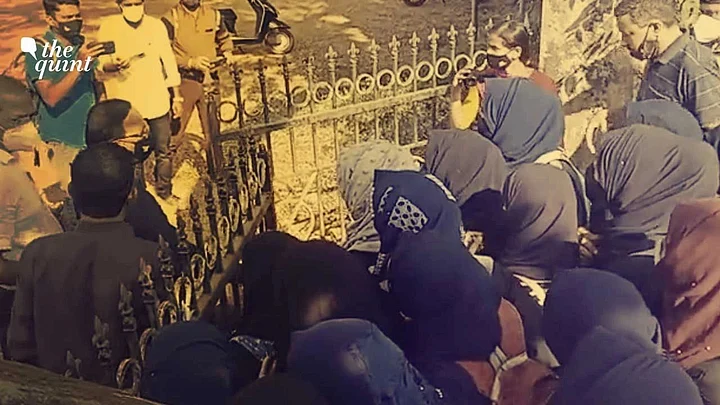A Supreme Court (SC) bench led by Chief Justice of India (CJI) NV Ramana, on Friday, 11 February, said that the apex court would list the issue over hijab in Karnataka colleges at "the appropriate time," since the matter is being heard in the state high court at the moment.
"Constitutional rights are for everybody and this court will protect it. We will list at the appropriate time," Ramana told Senior Advocate Devadatt Kamat, according to Bar and Bench.
Kamat had on Friday mentioned the fresh special leave petition filed against the Karnataka High Court's refusal to pass an interim order on Thursday allowing the girls to attend classes wearing their headscarves until a final adjudication.
"HC says that none of the students should raise religious identity while going to school & colleges. It has far-reaching consequences for other faiths and not only Muslims. For example the Sikhs wear Turbans. This in effect is complete suspension," Kamat stated in the SC on Friday, according to LiveLaw.
CJI Ramana responded to him saying that the high court is already hearing the matter and there is no knowledge about the order as of now, since it has not been published yet.
"I don't want to express anything. Don't take it on a larger level. We also know what's happening in the state and hearing and you also have to think over whether it's proper to bring it to Delhi," Ramana added, according to the report.
What Did the Karnataka HC Say on Thursday?
A Karnataka High Court bench of Chief Justice Ritu Raj Awasthi and Justices Krishna Dixit and JM Khazi said they would pass an order prohibiting any student from wearing any religious clothing while they consider the legal issues involved.
"It is a matter of a few days only," the chief justice of the Karnataka High Court said on Thursday, rejecting the argument raised by senior advocate Devadatt Kamat (for a group of Muslim girls denied entry to their college on 3 February) that this would amount to a suspension of the right to practise one's religion under Article 25 of the Constitution.
The main arguments in the case, including whether wearing of the hijab is an essential religious practice for Muslim girls, and to what extent this can be restricted by the state, will be taken up by the bench from Monday, 14 February onwards at 2:30 pm.
(With inputs from Bar & Bench and LiveLaw.)
(At The Quint, we question everything. Play an active role in shaping our journalism by becoming a member today.)
